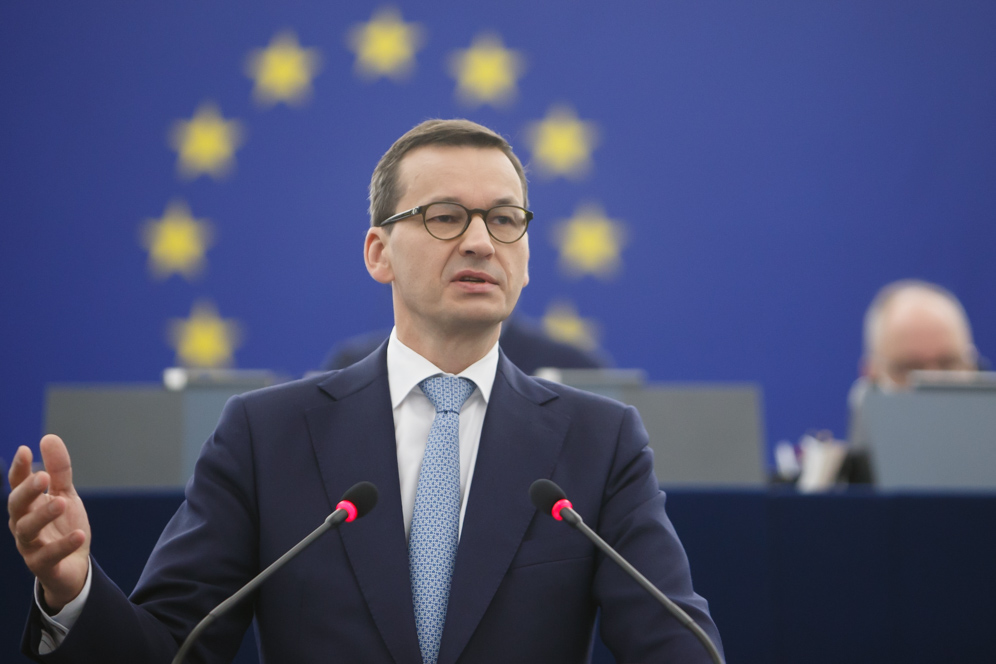The European Parliament (EP) voted overwhelmingly today in favour of having “democratic oversight” over how European Union recovery funds are spent. Among the few MEPs to oppose the resolution, almost all were from Poland’s ruling party.
The resolution in question called for the EP to be provided with all relevant information on national implementations of the EU’s €672.5 billion Recovery and Resilience Facility (RFF), which is the largest part of a stimulus package designed to speed up recovery from the pandemic-induced economic crisis.
“To ensure greater transparency and democratic accountability of national recovery and resilience plans, MEPs expect to receive…the necessary background information as well as a summary of the reforms and investments from the national plans it has received,” declared the EP.
“Full transparency and accountability involving Parliament would both ensure and enhance democratic legitimacy, sense of citizens’ ownership…[and] the effective and proper spending of funds,” it added.
Let me be clear: this is money from the people of #Europe for the people of #Poland. This is money meant to help people affected by the #COVID19 pandemic. #Transparency is needed. People need to know how money is being spent. Democratic legitimacy is essential!
— Siegfried Muresan (@SMuresan) May 20, 2021
In a vote, 602 of the parliament’s 705 members supported the resolution, while only 35 opposed it. Among the latter, 27 were from Poland’s ruling national-conservative Law and Justice (PiS) party.
Most of the remainder were from the nationalist Sweden Democrats and Dutch right-wing JA21 party, which are part of the European Conservatives and Reformists (ECR) group in the EP that PiS dominates.
“What do they have to hide?” asked Siegfried Muresan, vice-president of the centre-right European People’s Party (EPP), the EP’s largest grouping. “People need to know how money is being spent. Democratic legitimacy is essential!”
27 polskich posłów z PIS głosowało w @Europarl_EN przeciw możliwości kontroli sposobu i przejrzystości wydawania środków w Krajowych Planach Odbudowy. W całej Europie było ich w sumie 35.
602 posłów z Europy było za przejrzystością wydawania wspólnych pieniędzy. PIS przeciw. pic.twitter.com/eDK4OWxkpo— Bartosz Arlukowicz (@Arlukowicz) May 20, 2021
The news was quickly seized upon by Poland’s largest opposition party, the centrist Civic Platform (PO), which claimed it as proof that PiS plans to use the EU funds for its own political benefit.
Earlier this month, PO unsuccessfully appealed to other Polish opposition parties not to vote in favour of legislation before Poland’s own parliament approving national implementation of the EU Covid recovery plan. It argued that the government could not be trusted to spend the money fairly.
Today’s vote in the EP “only confirms the true intentions of those in power: to give [the money] to their own [people] and hide it from the public”, said PO’s leader, Borys Budka. He added that “this could have been prevented by introducing appropriate safeguards before ratification [by Poland’s parliament]”.
“Why are they planning to hide how they spend [the funds]? Do they want to steal?” asked PO MP Michał Szczerba. “Shame on you!” tweeted former PO leader Donald Tusk, who is now president of the EPP.
In response, senior PiS MEP Beata Mazurek explained her party’s decision to vote against the resolution by arguing that the EP has no competence to exert oversight over the RFF, which is “the sole responsibility of member states”.
“The fact that the RFF is an unprecedented instrument in terms of size and methods of financing does not justify the EP’s willingness to appropriate new competences for itself,” wrote Mazurek in a Twitter post.
“The exceeding of the competences of the treaties is additionally devious in this case, because it uses a precedent that will naturally come into use with the passage of time and will not raise any doubts at a later stage,” she added.
1-3.Tak byliśmy przeciw. Traktaty przyznają PE prawo udziału w procedurze budżetowej zw. z WRF,ale Instrument na rzecz Odbudowy i Zwiększania Odporności ze wzg. na specyficzny charakter nie wchodzi w zakres WRF jako takich i powinien pozostać w wyłącznej kom. państw członkowskich https://t.co/BkZipyU3pz
— Beata Mazurek (@beatamk) May 20, 2021
The Polish government submitted its plan for implementation of the Covid recovery fund to the European Commission at the start of this month.
Earlier this week, Deutsche Welle correspondent Tomasz Bielecki in Brussels reported, based on inside sources, that the commission wants Poland to provide more binding details regarding the monitoring of how money was being spent.
“The aim is to prevent a politicised division of EU money, which the Polish opposition is particularly afraid of,” wrote Bielecki. As one of its conditions for supporting a vote on the fund in Poland’s parliament, The Left (Lewica), another opposition group, insisted that the government create a committee to monitor expenditure of the fund.
Bruksela oczekuje, że Polska wpisze do swego KPO mocniejsze mechanizmy zapobiegające politycznemu rozdawnictwu pieniędzy unijnych. Projekt tkwi w „dialogu technicznym”, bo Polska poprosiła o odwleczenie oficjalnej oceny. https://t.co/A84ZbQ4tH4
— Tomasz Bielecki (@TomaszBielecki) May 18, 2021
Main image credit: Krystian Maj / KPRM (under public domain)

Daniel Tilles is editor-in-chief of Notes from Poland. He has written on Polish affairs for a wide range of publications, including Foreign Policy, POLITICO Europe, EUobserver and Dziennik Gazeta Prawna.




















